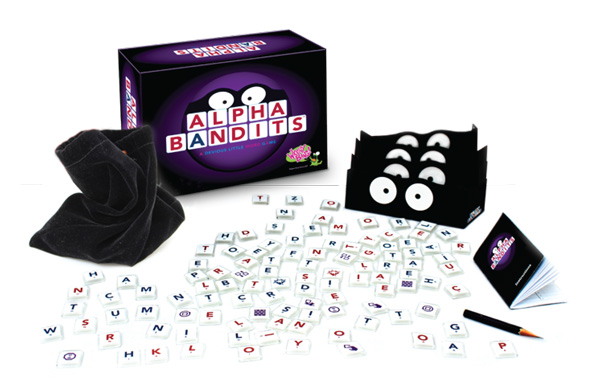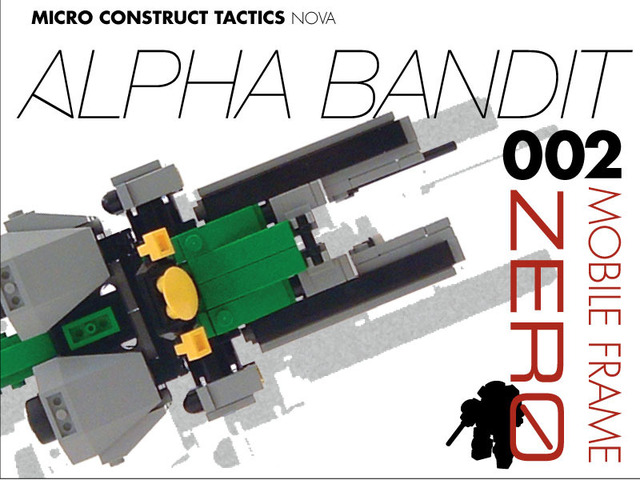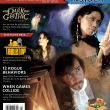When Games Collide: Protecting Intellectual Property Rights in a Crowded Market: Page 2 of 2

Here’s what happened to me:
Back in 2012, I was working to create a new word game that involves using letter tiles to form words. What makes this game unique from other word games is that there are special tiles that allow players to steal other players’ letters.
Originally, we were going to call the game WORD BANDITS, which makes sense for obvious reasons — you make words and you steal letters like a bandit.
Here are the steps I took to protect our intellectual property:
STEP 1: Learn to drive! Consult an attorney.
Unless you’ve been down the road of securing intellectual property protection many times before, it’s important to consult an attorney to help guide your journey. Many new inventors shy away from spending the high hourly rates for a good attorney, but the few hours you’ll spend usually pays for itself by making sure you get it right the first time. In this case, I chose to do the legal work myself.
STEP 2: Don’t pull out in the street without first looking both ways!
Research your trade name and choose wisely.
Unlike our other games we created (Quelf, FURT, and QUAO, which are all made-up words, or "fanciful," as the lawyers say is the strongest trade name) we knew that we had to do our research to make sure there weren’t any other games or products sold in the marketplace that would be similar to WORD BANDITS. We ran countless searches on Board Game Geek, Google, Yahoo!, GoDaddy, Bing, Amazon, and especially USPTO.gov to determine if any other game used the words "Word" or "Bandit," separately or in combination, which would be too similar or confusing to a consumer. We soon realized that there were so many other games with “Word” in them, that this would be a slippery road if we went ahead with that name. While we likely could have gotten a trademark registration for that name, we felt this word was too crowded in the market.
We brainstormed more names and ALPHA BANDITS popped up and totally clicked. ALPHA, like "alphabet." A.B., like the letters in the alphabet. BANDITS, like little devious thieves that steal your letters. When we did the research again, there were only a few games with the word "Alpha" or "Bandit" in them and definitely no game we could find that had both in the name.

STEP 3: Reserve a parking spot! Register your trademark, patent, and/or copyright.
Once I knew we had a name we liked, in February 2013 (17 months before our Kickstarter launch) I filed an application with the USPTO to reserve ALPHA BANDITS as an "Intent to Use" trademark. This trademark filing status is available to anyone that is fully intending to use this name in commerce and spend considerable time and money to invest in building the trade name in commerce.
By filing for this trademark application we are essentially telling others to politely "Back Off" of using this name in commerce. This may seem aggressive, but it’s a proactive tool that also is useful for other game designers during their research for Step 2.
An even better trademark protection would be to file a "Use in Commerce" application, but in order to do so I would have needed to be actually selling the product through interstate commerce. By registering it initially as "Intent to Use," I have to pay an additional filing fee when I upgrade the trademark to "Use in Commerce," but, considering what happened in Step 5, it was an investment worth making.
STEP 4: Drive! Start using your trade name.
After filing the "Intent to Use" trademark, I began sharing my idea with potential consumers through social media posts on Twitter and Facebook and to retailers at trade shows. In early 2014 I started setting up the game on Kickstarter as a placeholder (not public) to be the space to initially launch the game in public commerce.
By using the trademark in public, I started building brand recognition and gained more legal protection by proving my intent to transition the trademark to "Use in Commerce."
STEP 5: It’s your turn to go. Enforce your right of way.
Just as I was about to launch our Kickstarter campaign, the accident happened. Seemingly out of nowhere another game designer, Joshua A.C. Newman, launched his own game called Mobile Frame Zero 002: Alpha Bandit. It’s a very cool tactical game he created using giant robots made from LEGO pieces, but unfortunately the name ALPHA BANDIT was the most prominent text on the box cover, which was going to cause confusion to consumers when I launched my Kickstarter campaign.
How could this happen? Well, as it turns out, Joshua was on a very similar path to my own in naming his game. It appears that both of us started working on the games at about the same time. While initially researching the name, Joshua had also found no conflicts and proceeded to develop his game. His only mistake was that he didn’t apply for the "Intent to Use" trademark application or double-check the name again before launching his Kickstarter campaign.
When I saw his Kickstarter go up in April 2014 I was filled with road rage. My immediate reaction was to notify Kickstarter and have them pull his campaign, which, according to their policies, was within my rights to do as the trademark applicant. But I didn’t do that. I decided to sleep on it for a night and come back to it the next day when I was calmer.

The next day I woke up realizing that I had to see it through his eyes. Joshua, a fellow game designer, was just traveling down the same road as me and forgot to check his blind spot. The accident happened and it likely wasn’t intentional. Coming from it at a more rational angle, I sent him a message explaining that I was using the trade name ALPHA BANDITS, I had filed the application with the USPTO, and I was planning to launch my own ALPHA BANDITS Kickstarter campaign. I firmly stated that I was first in line as owner of this trademark (my tiny slice in the big gaming world pie) and we couldn’t both use this name. I was firm in asking him to change his game name, but not threatening. I finished by saying, "Can we work this out so both of us can benefit from this situation?"
He responded with, "#%^$! I’m sorry! Totally a mistake, but you obviously own the trademark. I’ll do some more research and switch the branding before the Kickstarter ends! I’ll make sure all my backers know, and I’ll make sure that they know about your project. I’ll also make it clear that you’ve been a singularly excellent fellow creator, since we both want them to support independent game production."
Whoa! I was blown away. I gave up a little bit because I didn’t have him take down the Kickstarter campaign, but I gained a lot because I made a new friend and we both have launched successful campaigns. On top of this, he was able to change the name of his game to Intercept Orbit and I still have the name for my game (ALPHA BANDITS). What had started out as a bad accident became a win-win situation for both of us.
I hope that my experiences help you on your journey with game publication. May your travels be safe and may your trip be just as enjoyable as the destination!
Matthew Rivaldi is the owner of Wiggity Bang Games, LLC, and is the co-creator of the original Quelf, FURT, QUAO and ALPHA BANDITS games. He lives in San Diego, California, and enjoys inspiring the next generation of entrepreneurs by teaching business classes at night at local colleges. When he’s not working and teaching he enjoys spending all his free time with his wife and two children.
www.WiggityBang.com • twitter.com/wiggitybang
DISCLAIMER: This article is for information purposes only — it is not legal advice and should not be relied upon in such a manner. Please consult with a lawyer.






As your story unfolded, I expected your issue to emerge with Word Thief, by Outset Media. They most recently published the game in 2009, although it appears to be out of print now. The game sounds similar in concept to Alpha Bandits, in that players form words with letters and steal letters from each other, except that Word Thief uses cards rather than tiles. Can you elaborate on why Word Thief did not pose an intellectual property conflict?
Great question Paul,
Reading the Word Thief BGG page over, my feeling is that it shouldn't pose an IP conflict because the games are so dissimilar. Why? AB doesn't use cards or suits (tiles), players don't steal words (the use bandit tiles to steal, flip, banish letters), there is no poker chips to add up the scores (players add up points based on letter count and bonuses)...therefore I don't think that copyright or patent issues would be any problem. Of course Outset could see the issue differently, and that would be their right to disagree.
Here's some more comments on why it shouldn't be an issue:
COPYRIGHT: Imagine games not having dwarfs, wizards or 12 sided dice because another company used them first? Imagine movies about zombies not being made, because someone had already created a zombie movie? Zombie movies (like word games) are OK to make, as long as they don't copy someone else's work word for word (the exception being movies in the public domain like Night of the Living Dead http://en.wikipedia.org/wiki/Night_of_the_Living_Dead ... which is another conversation). I guess someone could also mention Scrabble, Banagrams, Pijin, Turbo Words, Kerflip as being of similar game play. My personal feeling is that you have to own the work as your own, similar to an author writing a manuscript. Does the game feel like a clone of another game (like it got full-on ripped off) or does it stand on it's own and just have a similar theme?
PATENT: For games that are patented (most aren't), you would have to copy the mechanics of the game as a knock-off, and not improve on them. Patents aren't meant to limit inventors from improving on a mechanism, but are meant to keep companies from profiting off the exact mechanism. There is no IP issues on patent at all.
TRADEMARK: A consumer purchasing Alpha Bandits would have to be confused in that they were actually purchasing Word Thief in order for there to be a trademark issue. My feeling here is that they names are completely different and also connote different meanings. The definition of Bandit is "a robber or outlaw belonging to a gang and typically operating in an isolated or lawless area..." which is key to the game, because it's not just about stealing letters (thief), but messing with people's words by banishing, flipped and acting generally devious (bandit).